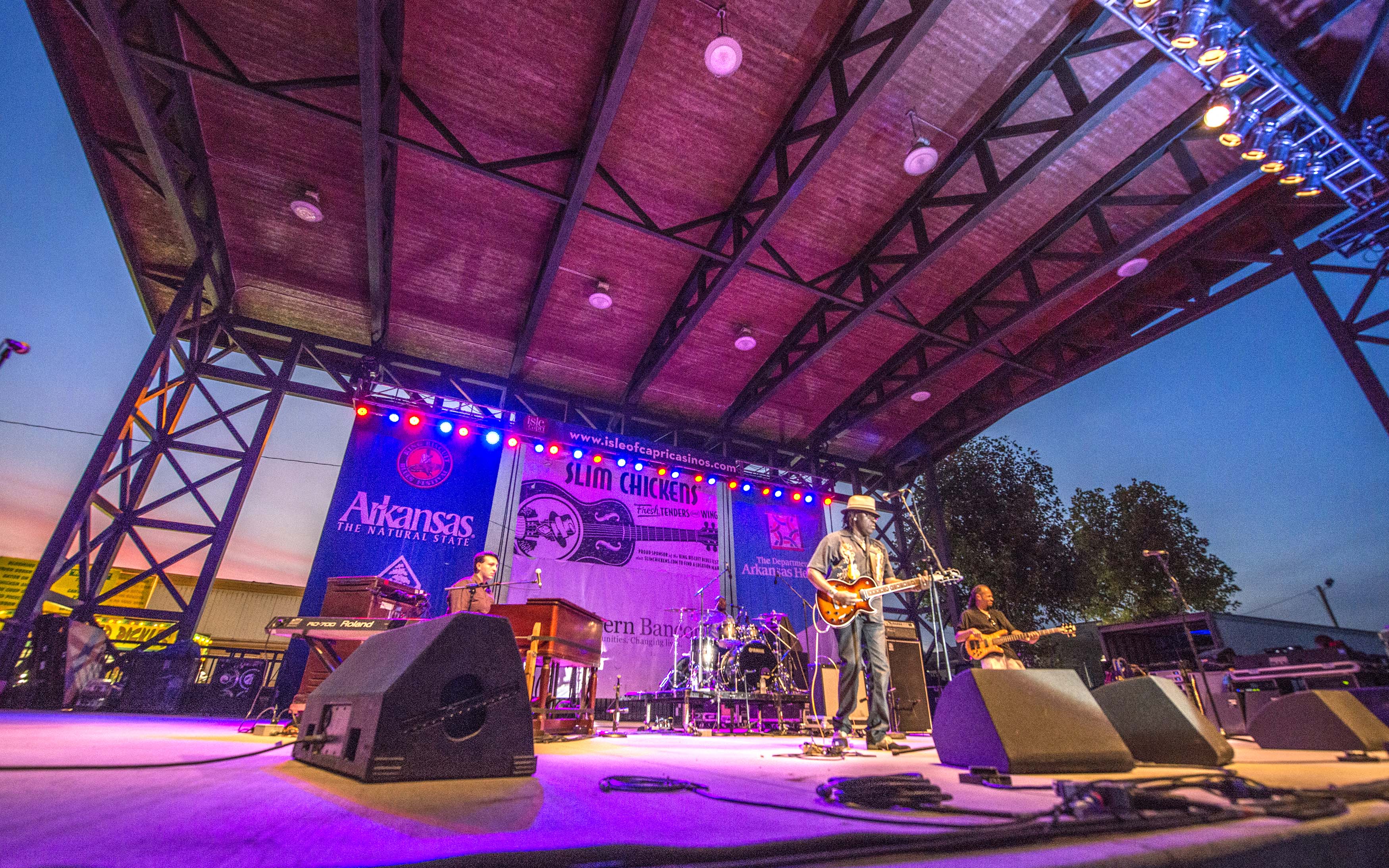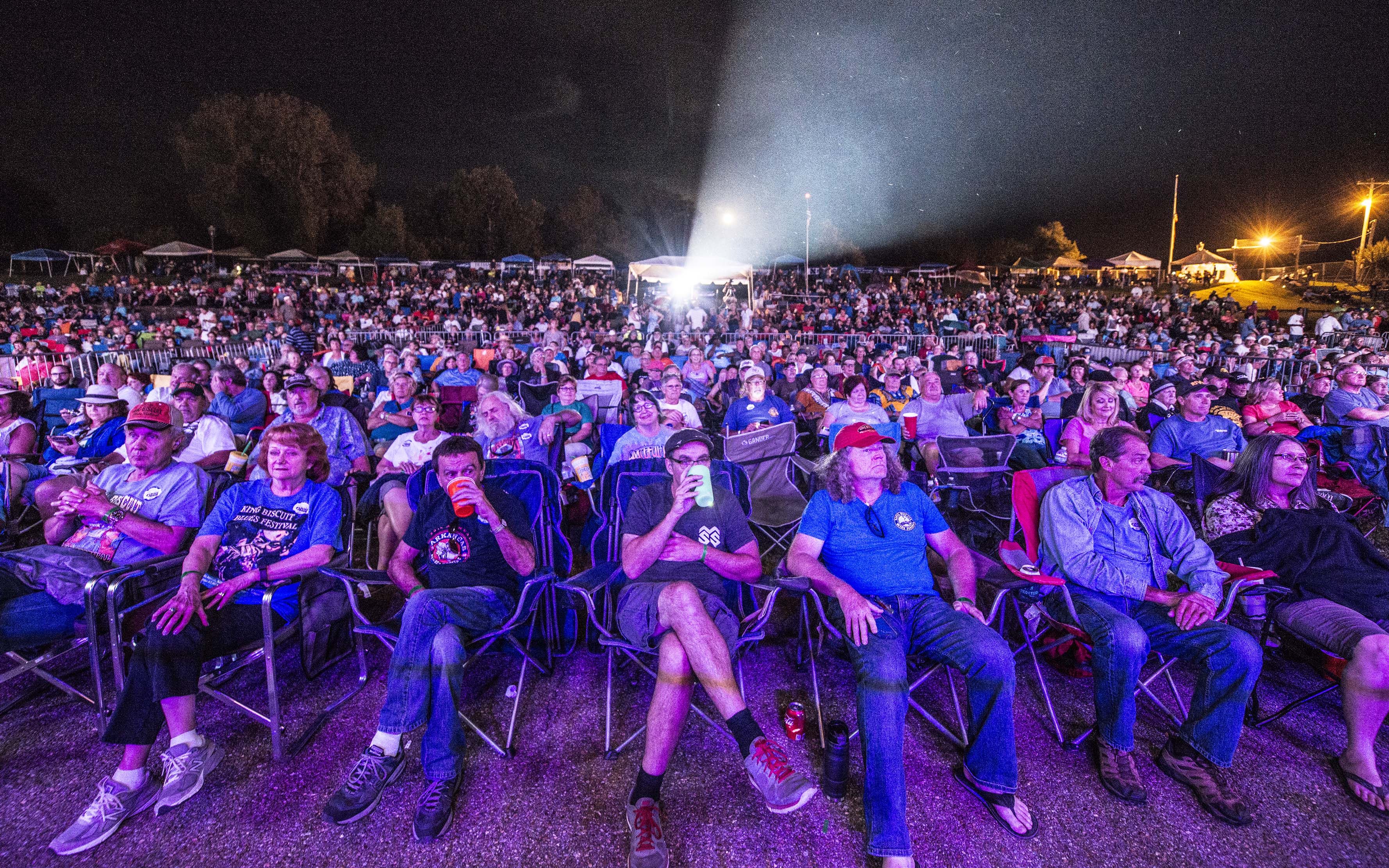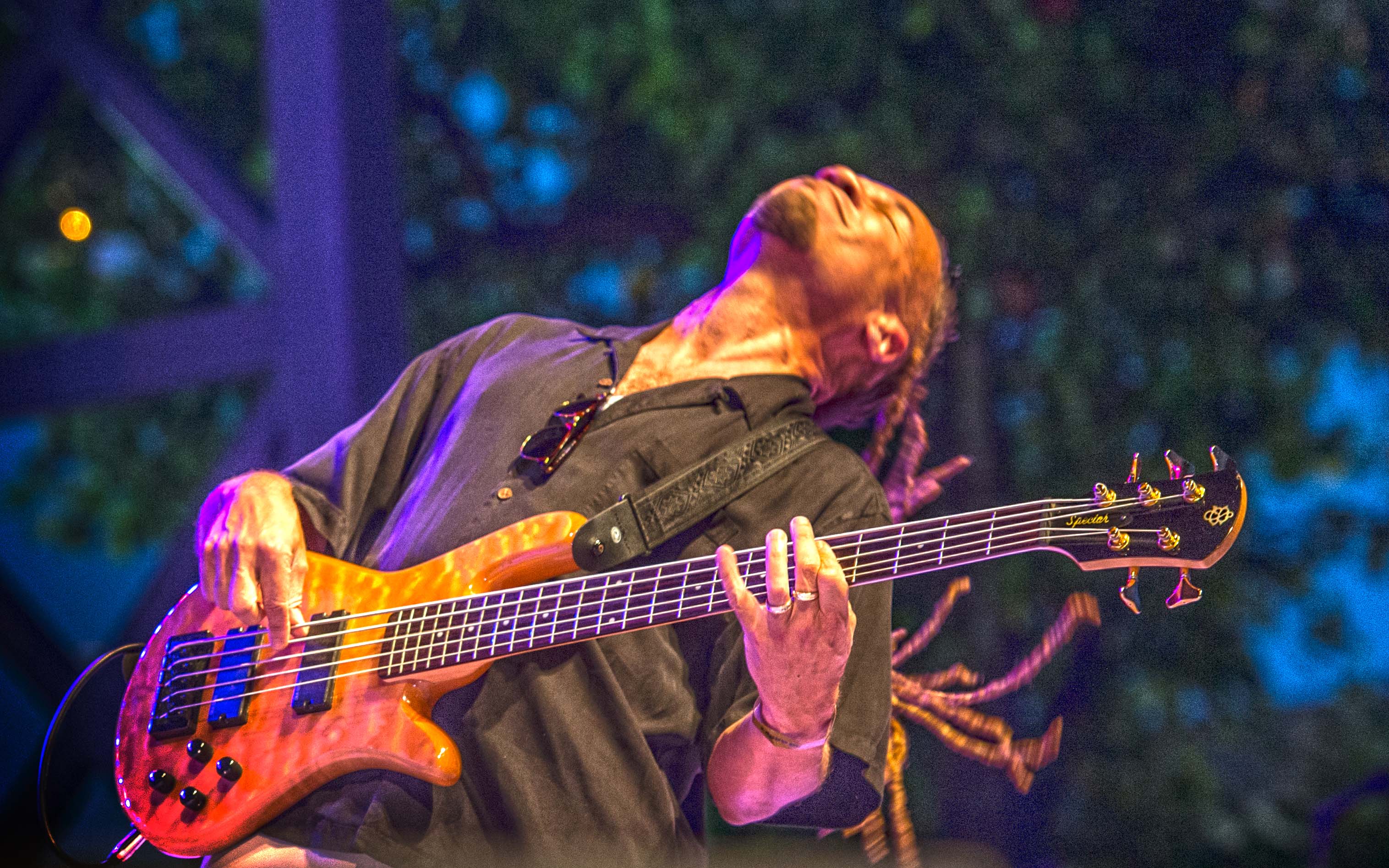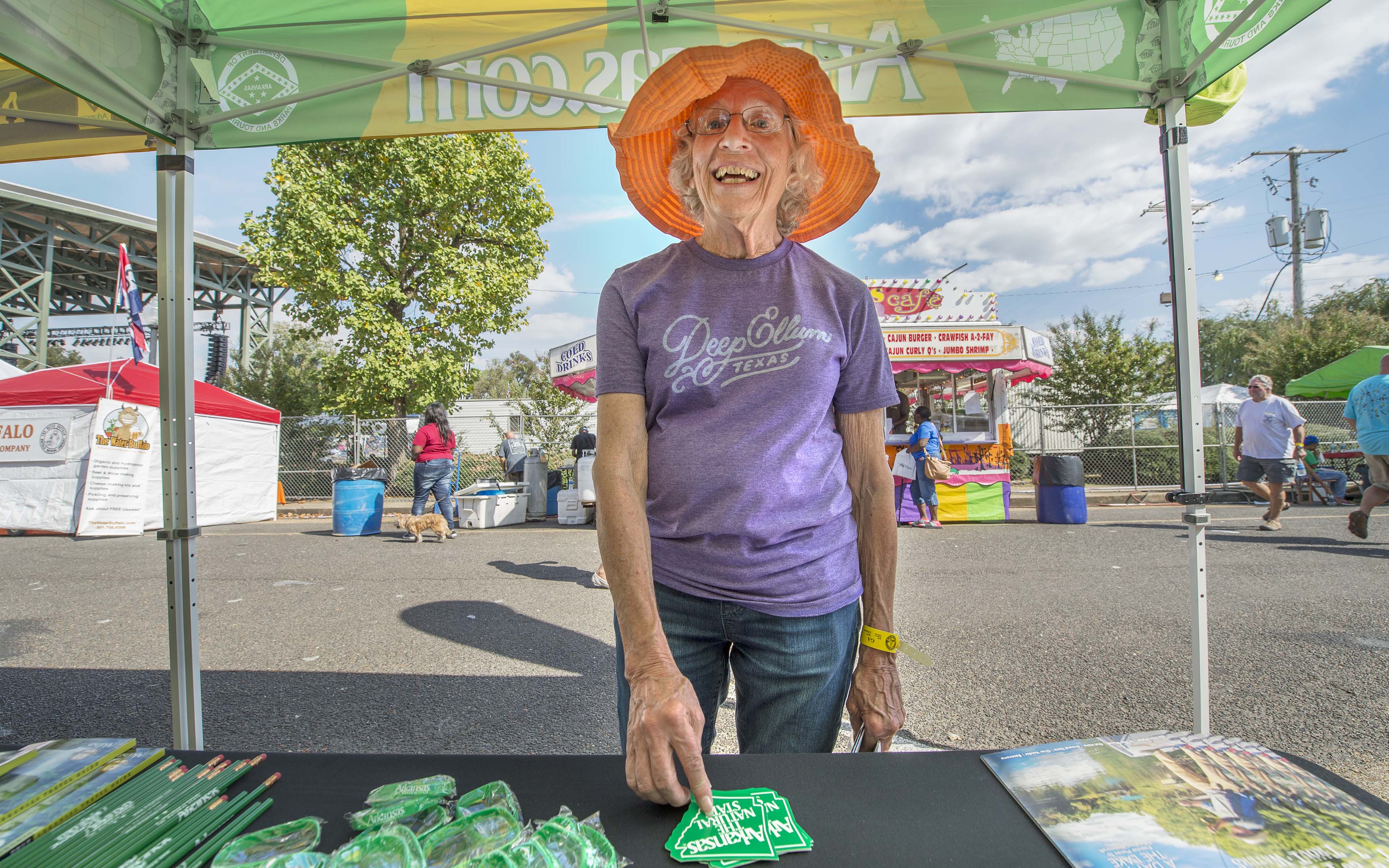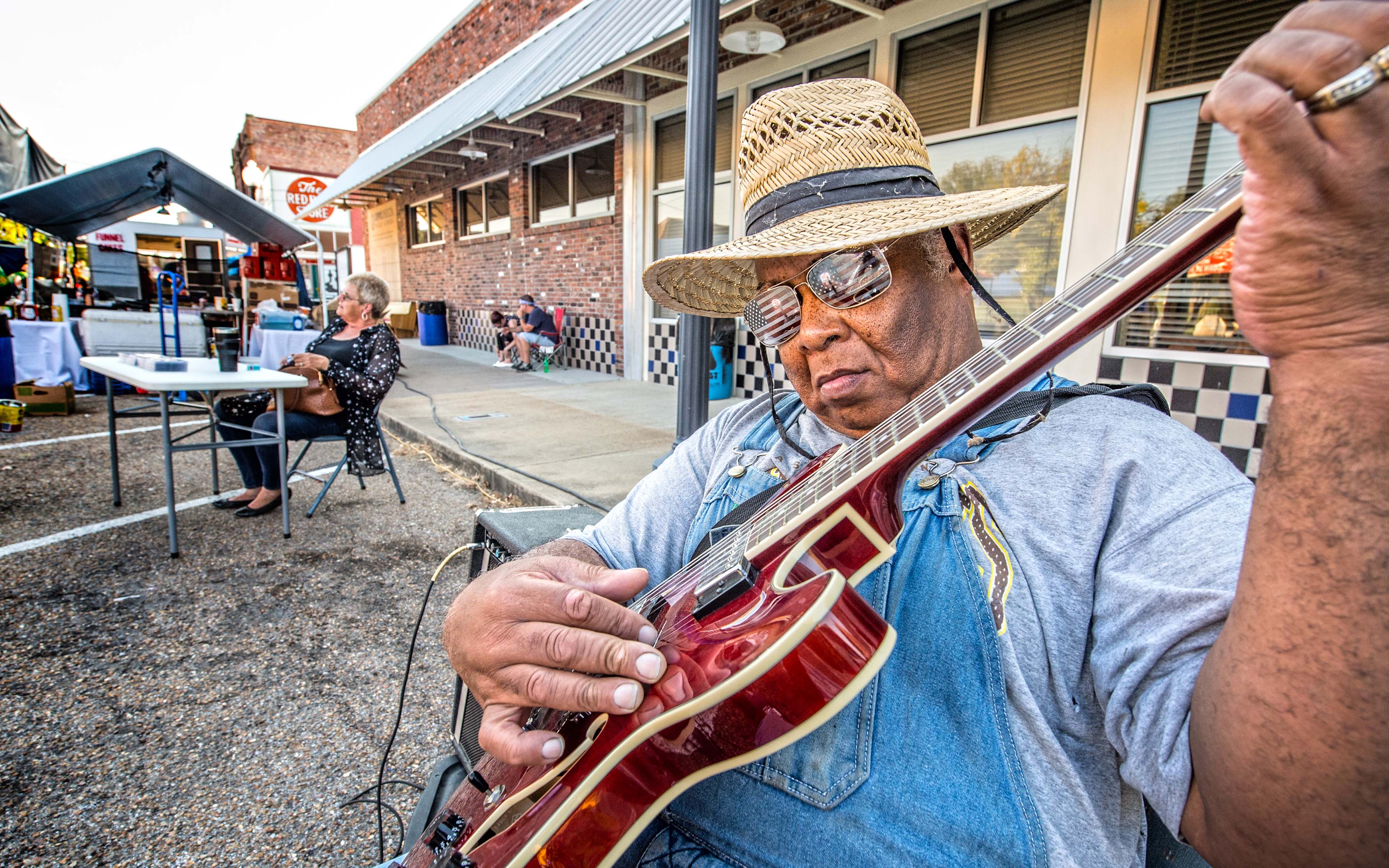October in Helena can only mean the blues
September 2-8, 2019
By Jay Edwards
“Well the blues ain’t nothing but some good man or woman feeling bad. It’s about life.” - Blues musician Leo “Bud” Welch
Next month tens of thousands of blues lovers will descend on Helena, Arkansas for that annual event known as the King Biscuit Blues Festival. Now in its 33rd year, the festival got its name from the long running radio program, “King Biscuit Time,” first broadcast in 1941 and legendary in Helena and the Delta, featuring live music from Sonny Boy Williamson and Robert Lockwood. The program ran every day during the week, with breaks from commercials by King Biscuit Flour.
According to Jim O’Neal, founding editor of Living Blues magazine and an authority on blues history, “‘The King Biscuit Time’ was the thing that really crystallized blues music in this area. Muddy Waters and B.B. King would come home from working in the fields every day just to listen to it.”
It’s difficult to pinpoint exactly when the style of music was first heard. Some credit the African American poet, teacher and anti-slavery activist Charlotte Forten Grimké for coming up with the description, in one of her many journal entries. Born in 1837 in Philadelphia, Forten moved when she was in her mid-twenties to the Sea Islands of South Carolina, where she taught freedmen who were working the abandoned plantations. One day after attending church she wrote that she “felt very lonesome and pitied myself,” calling her sad state of mind, “the blues.” Later, she journaled that there were certain songs that were popular among slaves that “can’t be sung without a full heart and a troubled spirit.”
Fast forward to 1903 when band leader W.C. Handy fell asleep on a wooden seat while he waited for a train in Tutwiler, Mississippi. He awoke a while later to singing and found the source to be an old black man dressed in rags, who crooned about a place where “the Southern cross the Dog,” as he slid a knife over the strings on his guitar.
The lyrics Handy heard referred to the man’s destination, where the Yazoo and Mississippi railroad, known as the Yellow Dog, crossed the tracks of the Southern Railroad. He was headed there and decided he’d make it into a song. “It was the weirdest music I ever heard,” Handy would later say.
He didn’t realize it then but what Handy was hearing was a version of the blues, those mournful, uplifting sounds sung by African American slave laborers that came out of Texas, Louisiana and of course, the Mississippi Delta.
Historian Scott Baretta says the different elements you get from a blues song, like style, rhythm, instruments and pentatonic scale (five notes per octave) originated in Africa. He also says there is a definitive pattern to the lyrics. “…you’re often singing a verse, repeating the verse, and then there is an answer line.”
In the latter decades of the twentieth century, economic devastation in the delta had taken its toll on Helena and the former vibrant town was in danger of dying. As more businesses closed, what was once downtown was becoming less and less. Community leaders and cultural experts in the region hoped they might spark a revival by promoting tourism through festivals, and a group calling itself the Sonny Boy Blues Society began planning and working toward making the first King Biscuit Blues Festival a reality.
Nearly twenty years after that first festival, the name had to be changed, because of licensing issues, to the Arkansas Blues and Heritage Festival. But in 2011, the festival’s 25th anniversary year, the owner of the trademark name, Wolfgang’s Vault, after realizing how significant and meaningful the original name was to the town, relinquished the King Biscuit name back to the festival. B.B. King was the headliner that year.
Wolfgang’s Vault, which is headquartered in San Francisco, is a vast archive of live music recordings that includes the “King Biscuit Flower Hour.” The “Flower Hour” debuted on FM stations across the U.S. in 1973 and turning into a Sunday night series featuring recorded concerts and interviews with rock’s biggest stars. “King Biscuit” would expand its reach to more than 300 stations before it ceased weekly production of new shows in 1993, and reruns continued until 2007. The list of rock royalty that appeared includes the Rolling Stones, the Who, Bruce Springsteen, Rod Stewart, Pink Floyd, Steve Miller, Lynyrd Skynard and The Band. Disc jockey Bill Minkin, the show’s first host, remained with “King Biscuit” until the mid-90s. Minkin dreamed up the show’s title, a play on “King Biscuit Time,” a long-running blues radio show’s sponsored by King Biscuit Flour.
These days the festival stretches along the levee on the banks of the Mississippi, unlike its early years when it was on the back of a flatbed truck in front of the train depot. The depot is on Cherry Street and is now a museum in a National Historic District.
What began in 1986 as a one-day event with a crowd of 500 has become a three-day event with more than 100,000 people attending. The festival draws blues enthusiasts from around the nation and around the world. Despite Helena’s shrinking population, hotels and motels have few vacancies on festival weekend.
It is hard to find any popular American music today that hasn’t been touched by the blues, and almost impossible not to like it, said 85-year old blues musician Bobby Rush, “The blues itself is the mother of all music’” he said, “because if you don’t like the blues, you don’t like your mama.”
Visit kingbiscuitfestival.com for this year’s lineup of artists and ticket information.
Sources: ultimateclassicrock.com; Delta Blues: The birth of America Music; pbs.org: The blues; Arkansas Encyclopedia of History; kingbiscuitfestival.com.
(Photos courtesy of Arkansas Department of Parks & Tourism)
PHOTO CAPTIONS:
King Biscuit Blues Festival attracts hundreds of thousands of people from all over the world to the banks of the Mississippi River in Helena, Arkansas. Featuring blues legends and up-and-coming acts, this iconic festival continues to preserve and promote the music of the Delta. This year’s festival will be held on October 9-12, 2019 and will include acts such as Delbert McClinton, Kenny Wayne Shepherd, and Ruthie Foster.



